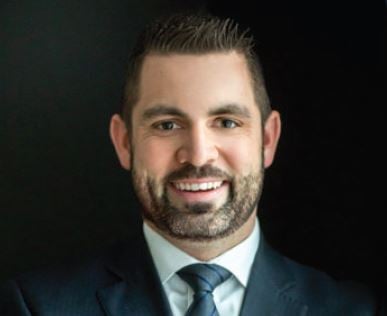Jonathan Hines of Wilson Insurance, one of Atlantic Canada’s largest privately owned independent brokerages, says insurance brokers shouldn’t think of themselves as just salespeople.
IBC: When did you get into the insurance business?
Jonathan Hines: Right out of university. After my last day of school, I went right into the business – mainly because it was brought to my attention that there’s not a lot of succession planning in insurance. It’s not a business that does a really good job of recruiting, and I saw the lack of recruiting as a real opportunity. Being a guy with a finance degree, it was an appealing business to be in – especially as one that had a lot of opportunity and not a lot of succession planning.
IBC: Wilson Insurance has a thriving commercial business. Do you think that’s a side neglected by people just getting into the industry?
JH: Most people, when they think about insurance, think about personal lines insurance products. They’re really unaware of the magnitude of money and time and effort most businesses spend on risk management insurance placement. They really don’t understand the role a broker plays as a key advisor to a business – and what kind of service that a financial lines professional brings to the table. If it was more positioned as a professional advisory role than a sales role, I think you’d get more people investing in postsecondary education who would be interested in it. That’s certainly how I look at it, and how our firm looks at it.
IBC: Tell us a little more about Wilson Insurance.
JH: Wilson Insurance is an independent brokerage that still operates out of the same building it was founded in back in 1930. Originally, they were a central New Brunswick broker, but we’ve moved more into mid-market commercial business and more into a regional brokerage model. That now is the strategy. It’s been really interesting to watch a business that focused on a particular geographic area move into a larger geography and a totally different client type. But we still maintain full independent ownership – and the fully independent position we’re in to be able to advise clients without bias. Our objective is to be a leading technical advisor in the markets that we operate in.
IBC: How does operating out of New Brunswick differ from being based in a larger market like, say, Toronto?
JH: I think we have common challenges everywhere – and the more pervasive globalization becomes, the less geographically bound businesses are. If you just look at your geographic area, you really narrow your opportunities. Even in New Brunswick, we and our
clients are part of global acquisitions and mergers. If we’re going to support local clients, we have to be able to do it on a broader scale than just our own backyard.
IBC: Is it a good time to be in the industry right now?
JH: I think it’s a great time – especially if you’re looking at it from the view that the world is becoming more complex. The more complex it becomes – the more pervasive big data and information technology become – the more people are looking for advisors to help them understand and manage information. If your goal is to specialize in helping your clients understand risk, it’s a great time to be in the business. Information is more available than it ever has been, but it also occupies more of everybody’s time as well.
IBC: What’s the biggest challenge facing the industry, in your opinion?
JH: One of the things that’s happened, regardless of the type of business that you’re in, is that technology risk is now almost totally unavoidable. That’s the biggest difference over the last couple of decades. At one point in time, you could avoid that risk by simply avoiding technology altogether. Now you just can’t do that. Understanding how that affects your business and how you manage that, I think, is becoming a complicated topic, along with other areas that are maybe not focused on as much as traditional fire insurance, like cyber risk. The more common those risks become – and the more stringent regulation is – the more there’s a role for a competent advisor to assist clients in managing those risks.


